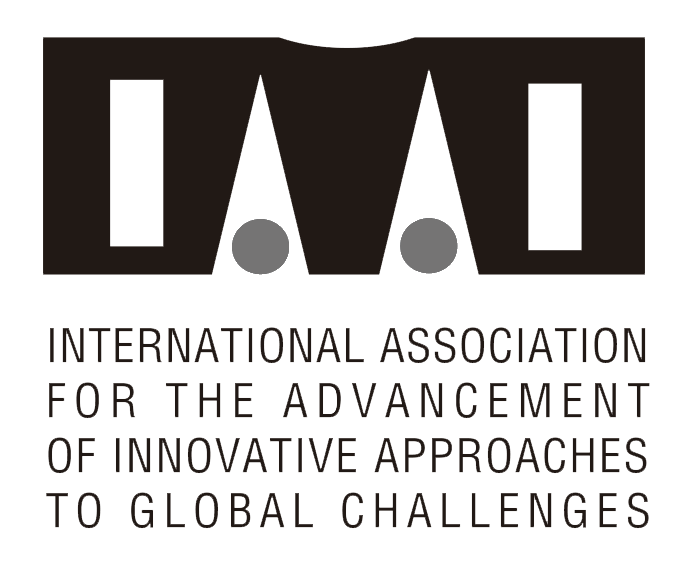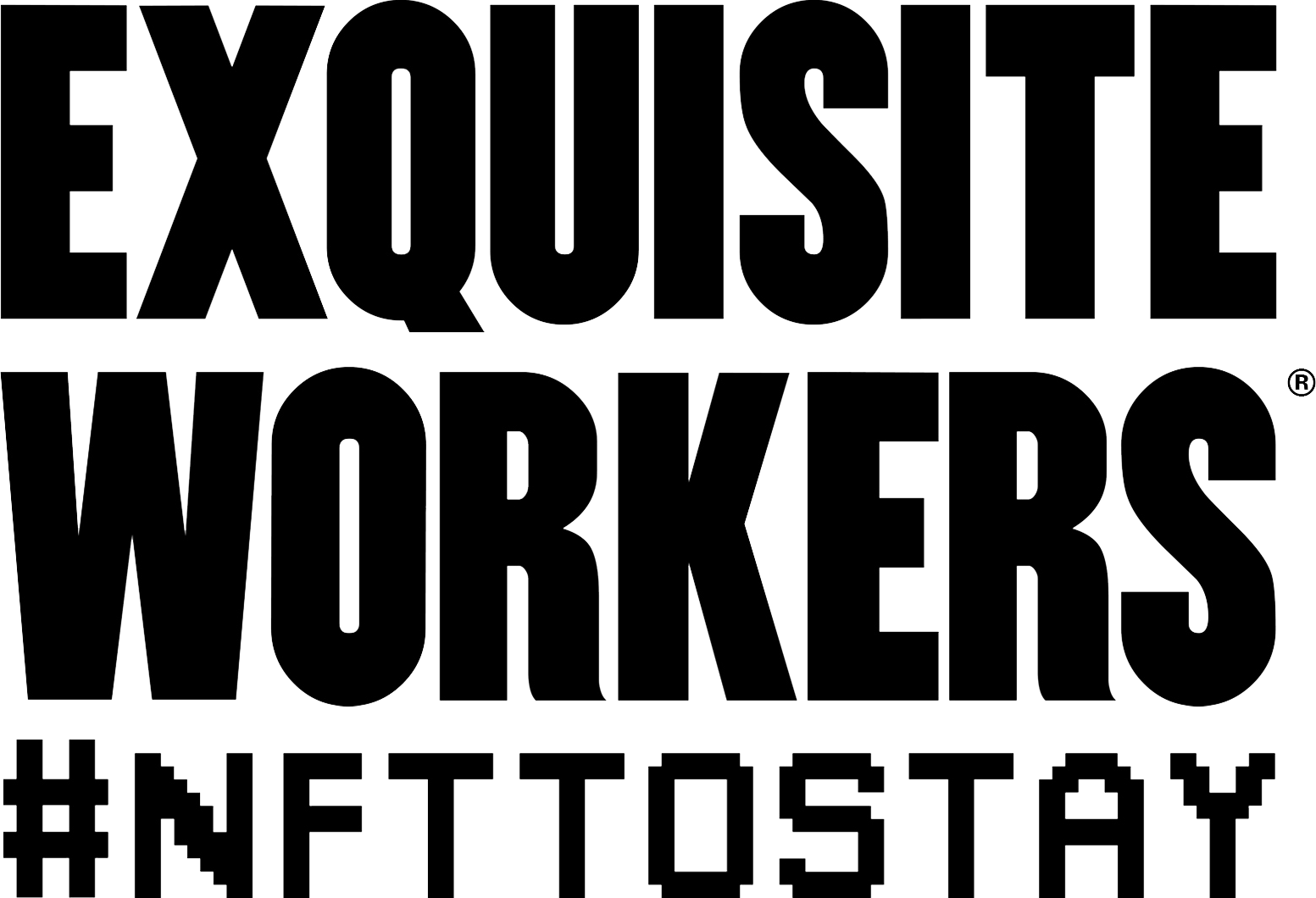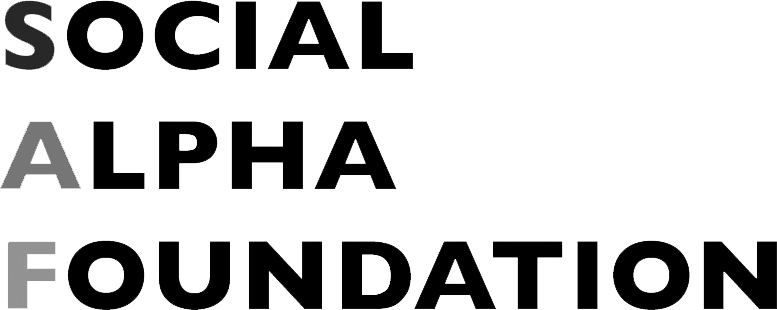DigitalArt4CLIMATE
4CLIMATE
DigitalArt
Discover the COP26 Collection
at Seattle NFT Museum, USA
at Seattle NFT Museum, USA
INSPIRE & SUPPORT CLIMATE ACTION THROUGH THE POWER
OF CULTURE & TECHNOLOGY
OF CULTURE & TECHNOLOGY
about
The United Nations announced 2021 as the Year of Creative Economy for Sustainable Development to recognise the value of creativity as a powerful resource for sustainable development and climate action. DigitalArt4Climate in partnership with UN-Habitat is an initiative to accelerate that force.
The DigitalArt4Climate is an unprecedented multi-stakeholder partnership initiative which uses blockchain technology to turn art into digital assets or NFTs, which can be collected and traded, thus opening up a socio-technological innovation space which helps to unlock extraordinary potential for resource mobilization and climate empowerment.

Joining forces
with leading voices
across disciplines
Joining forces
Joining forces
Joining forces
Joining forces
with leading voices
with leading voices
with leading voices
with leading voices
across disciplines
across disciplines
across disciplines
across disciplines
across disciplines






Joining forces
with leading voices
Joining forces
Joining forces


Souki Belghiti, 42 y.o., Morocco. Visual artist & filmmaker.

Mehran Yazdi, 32 y.o., Iran. Visual artist.

Ana Đačanin, 17 y.o., Serbia. Digital artist.

AmazingDevya, 10 y.o., USA. Digital artist diagnosed with autism.

Margaret R. Thompson, 31 y.o., USA. Multidisciplinary artist based in New Mexico.

Amir Karimi, 24 y.o., Iran. 3D Animator, arquitecture designer, eco activist.

Lucywho, 23 y.o., Switzerland. Graphic designer & awakening illustrator.

Kirill Kurbatov, 30 y.o., Russia. Photographer & documentary filmmaker, collage artist.

Katherine Boland, 64 y.o., Australia. Visual artist, eco-activist.

Bricx Martillo Dumas, 30 y.o., Philippines. Digital artist, documentalist, eco activist.

Robotokat, 42 y.o., UK. Social activist & climate designer.

Gemma Quevedo, 42 y.o., Spain. Multidisciplinar artist.

Chloé Hajjar, 25 y.o., USA. Digital & fine-artist with a focus on live recordings & memory preservation.

Ryan Harding, 31 y.o., UK & China. Photographer, documentalist, filmmaker.

Judit Canela, 37 y.o., Spain. Visual artist, social activist.

Tanya Rana, 24 y.o., India. Visual artist.

Aljohara, 59 y.o., Saudi Arabia. Photographer, art historian, visual artist.

Kat Hassell, 39 y.o., UK. Ex-teacher & illustrator.

Dasha Lyubimova, 31 y.o., Kazakhstan. Producer, dancer & choreographer.

Ayomitunde Adeleke, 26 y.o., Nigeria. Botanist, self-taught documentary photographer.

Nicolle Rockstroh, 27 y.o., Guatemala. Graphic designer & illustrator.

Michisess, 18 y.o. From Siberia, based in Ukraine. Writer & books illustrator.

Davi Russo, 43 y.o., USA. Voice artist.

Amber Morrison, 35 y.o., Canada. Digital artist.

Graffiti Girls, Mlango Kubwa Young Mothers, 26 y.o., Kenya. Mural artists.

Nico Lob, 32 y.o., Chile. Digital artist, graphic designer.

Elena Gris, Spain, Russia. Florist, visual artist.

Sashko Balabai, 50 y.o., Ukraine. Traditional painter, social activist.

Nibera, 29 y.o., Slovenia. Graphic designer, digital artist & film photographer.

Ekaterina Lestienne, 38 y.o., France. Digital & collage artist.
#2 Shame
Mehran Yazdi, 32 y.o. Iran.
Visual artist.
"Oh, the poor bird that felt free and now strikes the walls of this cage! Woe, when you feel homesick for the land as if it had offered more freedom — and there is no longer any “land”. ~ From Friedrich Nietzsche’s Die fröhliche Wissenschaft (The Joyful Science) (1882/1887); translation by Walter Kaufmann."
Click to zoom in
Click to zoom in
#3 Team Earth
Ana Đačanin, 17 y.o. Serbia.
Digital artist.
"Every change have its own two sides - change can be used either for creation or for destruction. That is the choice. We got to be on this planet, it took care of us in the very beginning and now it is up to us to take care of it in the return."
Click to zoom in
Click to zoom in
#4 Cut Trees Polar Bear Sad
AmazingDevya, 10 y.o. USA.
Digital artist diagnosed with autism.
"Devya loves bears (sun bear is her favorite bear). This drawing she started off with trees being cut, making it hot and icebergs melting, making polar bear sad. Also seen is a fairly being sad as well. And the Earth is changing colors while there is is lava in the black box. This literal translation shows how language and concept is processed. Perhaps we all need this literal translation to help us wake up and take action against climate change."
Click to zoom in
Click to zoom in
#5 Angels Seek Amends
Margaret R. Thompson, 31 y.o. USA. Multidisciplinary artist based in New Mexico.
"In Greek mythology, Phaethon, son of Sun God Helios, rode his father's horses of the sun chariot too near Earth and began to scorch it. Out of prid he used a whip and the horses went wild. Phaethon lost control and Inevitably caused havoc to the sky and earth.
We are in a Phaethon moment. We humans have tried to control the reins of nature, scorching and polluting the Earth. Others like the little angel in the painting courageously fight against the destruction."
Click to zoom in
We are in a Phaethon moment. We humans have tried to control the reins of nature, scorching and polluting the Earth. Others like the little angel in the painting courageously fight against the destruction."
Click to zoom in
#7 Heal yourself & the planet
Lucywho, 23 y.o. Switzerland. Graphic designer & awakening illustrator.
"By healing yourself, you take care of everything you consume and this will heal the planet. I think if everybody would heal, people start to understand that climate change is real and we are all responsible."
Click to zoom in
Click to zoom in
#9 The Firefighter #4
Katherine Boland, 64 y.o. Australia. Visual artist, eco-activist.
"In the aftermath of the 2019/20 Australian bushfires, which devastated my region on the south-east coast of Australia, I use fire itself to create my work. Here I explore themes of destruction, ephemerality and change, inside/outside, transparency and pattern, colonial overlay and land/nature and culture dichotomies.
Click to zoom in
Click to zoom in
#10 Nexus
Bricx Martillo Dumas, 30 y.o. Philippines. Digital artist, documentalist, eco activist.
"Explorers and settlers would just wipe out an entire species and in the process, decimate the eco-system forever. The difference now is, we knowingly doing this.” - DiCaprio.
Changing the way we live now changes the way we will live tomorrow.
Click to zoom in
Changing the way we live now changes the way we will live tomorrow.
Click to zoom in
#12 The Mourn
Gemma Quevedo, 42 y.o. Spain. Multidisciplinar artist.
"My submission represents the mourning for all living creatures who are suffering because of climate change and because of the human impact in this dying world. Maybe If we can feel it, we may try to do something about it. I wish there is hope."
Click to zoom in
Click to zoom in
#13 Allegory of Survival
Chloé Hajjar, 25 y.o. , USA. Digital & fine-artist with a focus on live recordings & memory preservation.
"Imagining the Earth as a living body, that suffers illness, heals and breathes as though it is a living organism. My most detailed work to date. Over100 layers of imagery and brush work."
Click to zoom in
Click to zoom in
#14 Wayward Cloud
Ryan Harding , 31 y.o. UK & China. Photographer, documentalist, filmmaker
"This photo was taken in Taiwan during a period of extreme typhoon."
Click to zoom in
Click to zoom in
#15 Sea awakening
Judit Canela, 37 y.o. Spain. Visual artist, social activist.
"My goal is to raise awareness about climate change impacts through my intimate point of view. My intention is to evoke with a subtle sense of poetry, the idea of fragility and hope. I want these images to operate on a profound, transformative level."
Click to zoom in
Click to zoom in
#16 Feel the Future
Tanya Rana, 24 y.o. India. Visual artist.
"Observing people’s actions around the world in times of climate emergency is not giving me any hope of a green future and even do not want to give. This is time to feel the fear."
Click to zoom in
Click to zoom in
#17 A room with a sea view
Aljohara, 59 y.o. Saudi Arabia. Photographer, art historian, visual artist.
"This is the fearful visualisation of how parts of our rapidly changing planet might become if we do not take care of them. The image is a warning what might come: a view into the future?"
Click to zoom in
Click to zoom in
#18 Storm
Kat Hassell 39 y.o. UK. Ex-teacher & illustrator.
"Storm' is a warning and represents untimely death - that of planetearth and all who inhabit it. The skull, which has long been a symbol of mortality and the brevity and fragility of life, represents us all. It melts against a backdrop of a stormy planetary fireball, reminding us of the climate disaster unfolding around us."
Click to zoom in
Click to zoom in
#20 Struggling to live
Ayomitunde Adeleke, 26 y.o. Nigeria. Botanist, self-taught documentary photographer.
"In Nigeria, the heatwave has reached unbearable levels on several occasions. Persons living with albinism are dying at an alarming rate due to the deteriorating weather conditions which makes them find life extremely difficult, as they cannot stand high temperatures."
Click to zoom in
Click to zoom in
#21 Lightlifting
Nicolle Rockstroh, 27 y.o. Guatemala. Graphic designer & illustrator.
"Now is the time to unlearn our harmful behaviors, lift others up and take action. We need each other. And we need to be the kindest, most empathy gleaming version of ourselves."
Click to zoom in
Click to zoom in
#22 Tender, struggling with herself
Michisess, 18 y.o. From Siberia, based in Ukraine. Writer & books illustrator.
"Global warming is no joke and something has to be done about it. This young girl symbolizes humanity which is struggling: it destroys the planet and also it tries to save it. This can be seen in the numerous wounds on her body. Her hair is the pollution, the leakage of oil and the flow of garbage and plastic into the world's oceans."
Click to zoom in
Click to zoom in
#24 Seaside Visit with Anthropogenic Dread
Amber Morrison Fox, 35 y.o. Canada. Digital artist.
"I live on Vancouver Island where the climate crisis has caused immense damage: heatwaves, hurricane winds, and excessive rain. Forestry, mining, and overfishing contribute too. The skeleton, an embodiment of my anthropogenic dread, accompanies me whenever I visit the outdoors."
Click to zoom in
Click to zoom in
#25 Team Spirit
Graffiti Girls, Mlango Kubwa Young Mothers, 26 y.o. Kenya.Mural artists.
"This mural is not an attempt to compete in digital art creation, – rather, it is a message sent across to our brothers and sisters that everyone can contribute to making their communities beautiful and aware of climate change."
Click to zoom in
Click to zoom in
#26 Final Stage
Nico Lob, 32 y.o. Chile. Digital artist, graphic designer.
"The planet is facing a harsh sentenced to death, a miserable disease. We must be the cure. The color, the shapes, the beauty, and life is vanishing in front of our eyes. Do not let this disease reach the final stage."
Click to zoom in
Click to zoom in
#28 Field Sprite
Sashko Balabai, 50 y.o. Ukraine. Traditional painter, social activist.
"A mythical creature that lives in a field, among plants and trees that are more vulnerable than ever to human hands. Barbecue symbolically represents the destruction of thousands of trees from the fire that people bring with them to nature. And there, in the fire, beauty and magic perish."
Click to zoom in
Click to zoom in
#29 Livestock Methane & Nitrogen Emissions
Nibera, 29 y.o. Slovenia. Graphic designer, digital artist & film photographer.
"Modern society has become increasingly disconnected from nature. Humans are abusing natural resources to maintain extravagant lifestyles and using them as dumping stations for toxic waste products. I found myself feeling nature was being drowned more deeply every day. I feel the need to be physically and mentally present in untouched nature and wilderness environments."
Click to zoom in
Click to zoom in
#30 The Wildfire
Ekaterina Lestienne, 38 y.o. France. Digital & collage artist.
"I am feeling personally responsible for sending a message about the climate change and the importance of being engaged in the efforts to slow it down. My layered, detailed, textured digital сollage refers to the multidimensional soul of the world and can be interpreted as our precious and beautiful planet being ripped to peace by extreme climate events."
Click to zoom in
Click to zoom in
ABOUT DIGITALART4CLIMATE
ABOUT DIGITALART4CLIMATE
ABOUT DIGITALART4CLIMATE
ABOUT DIGITALART4CLIMATE
ABOUT DIGITALART4CLIMATE
ABOUT DIGITALART4CLIMATE
ABOUT DIGITALART4CLIMATE
ABOUT DIGITALART4CLIMATE
ABOUT DIGITALART4CLIMATE
"Seeing the global climate change storm building up creates a lot of uncertainty, anxiety and a sense of hopelessness, but when we turn in our quest for answers on the question: What can I do, What can we do? towards culture and art, our minds brighten up and we feel inspiration and joy. Yes, we can build a haven - a societal and natural environment that nurtures and protects us when the storm hits. If we combine the transformative power of culture with the transformative power of technology, like we do with the DigitalArt4Climate initiative - we can build a movement of global angels that care for the common good and who care for Mother Earth…"
miroslav polzer,
digitalart4climate founder
digitalart4climate founder
"Our generation has been blessed by the conspicuous opportunity to impact our world with the transformational power of Art and Blockchain together. Art is free, and looks for human expression and emotional impact on behalf of society. Blockchain allows flexible ownership models in a collective intelligence framework in search of a trustless financial system. By identifying our social priorities we can take advantage of this historical opportunity of merging art and technology to build the world we always dreamed about."
Irina Karagyuar, DigitalArt4Climate partner
“We have inherited incredible legacies from our common ancestors. Let’s become the ancestors that next generations will be proud of. Let's be passionate, vulnerable and rebel for life. Let’s look deeply at entirely new ways and tools to build a better world. Let our lives document the humanity’s impact on the planet. Let the Exquisite Corpse, the immortal Surrealist game, be the library of wisdom and teach us that each next individual contribution to the collective expression hugely counts. Because when we act together, the whole thing is much more than the sum of the parts".
Exquisite Workers, DigitalArt4Climate partner
FAQ
FAQ
The DigitalArt4Climate is an unprecedented multi-stakeholder partnership initiative which uses blockchain technology to turn art into digital assets, also known as NFTs, which can be collected and traded, thus opening up a socio-technological innovation space which helps to unlock extraordinary potential for resource mobilization in support of Sustainable Development Goals and UN Agenda 2030 implementation in general and action for climate empowerment in particular.
The DigitalArt4Climate is an opportunity to showcase innovative ideas for climate action, support diversity and inclusion globally, and underscore the value of technology enabled art - as a key part of the human experience in the 21st century.
As UI & UX & web designers, software, game and marketplace developers, you can participate already in the preparatory phase of the initiative by joining the Designathon.
As artists you are invited to submit your artwork, both digital and traditional to the DigitalArt4Climate Art Competition ending in October 2021 and offer your artwork on the future DigitalArt4Climate NFT marketplace launched in aprox July 2022.
The DigitalArt4Climate is an opportunity to showcase innovative ideas for climate action, support diversity and inclusion globally, and underscore the value of technology enabled art - as a key part of the human experience in the 21st century.
If you are curious, motivated, skilled, and eager to be challenged to solve problems concerning sustainability, this is the perfect place for you. We are looking forward to receiving your application!
As UI & UX & web designers, software, game and marketplace developers, you can participate already in the preparatory phase of the initiative by joining the Designathon.
As artists you are invited to submit your artwork, both digital and traditional to the DigitalArt4Climate Art Competition ending in October 2021 and offer your artwork on the future DigitalArt4Climate NFT marketplace launched in aprox July 2022.
The DigitalArt4Climate is an opportunity to showcase innovative ideas for climate action, support diversity and inclusion globally, and underscore the value of technology enabled art - as a key part of the human experience in the 21st century.
If you are curious, motivated, skilled, and eager to be challenged to solve problems concerning sustainability, this is the perfect place for you. We are looking forward to receiving your application!
Implementation of climate protection of the Paris Agreement, adopted in the context of the United Nations system in the year 2015, needs everyone everywhere to be empowered and engaged.
The main program through which the United Nations support and accelerate climate action of sub-national and non-state actors is the Action for Climate Empowerment programme.
IAAI GloCha, the lead organizer of DigitalArt4Climate is working with the United Nations on Action for Climate Empowerment Innovation and resource mobilization innovation for Action for Climate Empowerment in the context of the project ACE_AT.
Resources mobilized through DigitalArt4Climate will be used to implement ACE support structures developed within the ACE_AT project as well as individual ACE projects, which will be available for participating artists and buyers to select as beneficiaries once the DigitalArt4Climate marketplace will be operational.
The main program through which the United Nations support and accelerate climate action of sub-national and non-state actors is the Action for Climate Empowerment programme.
IAAI GloCha, the lead organizer of DigitalArt4Climate is working with the United Nations on Action for Climate Empowerment Innovation and resource mobilization innovation for Action for Climate Empowerment in the context of the project ACE_AT.
Resources mobilized through DigitalArt4Climate will be used to implement ACE support structures developed within the ACE_AT project as well as individual ACE projects, which will be available for participating artists and buyers to select as beneficiaries once the DigitalArt4Climate marketplace will be operational.
Culture - in all its manifestations - is at the heart of all societal engagement, and it will be critical in achieving the global goals of the Paris Agreement. Culture helps to envision new pathways towards a better world and it energizes individuals and communities to work for the common good.
Currently, there remains an extreme lack of easily accessible entry points for artists to contribute to global sustainability goals. There is also a lack of mechanisms that can recognize and reward culture-related contributions to the common good, as it is difficult to verify and transfer ownership through conventional media platforms.
Currently, there remains an extreme lack of easily accessible entry points for artists to contribute to global sustainability goals. There is also a lack of mechanisms that can recognize and reward culture-related contributions to the common good, as it is difficult to verify and transfer ownership through conventional media platforms.
The DigitalArt4Climate has approached the blockchain opportunity with open eyes, as it sees the potential of the technology to not only disrupt existing inefficient supply chains, but also the ability to transform how disparate communities communicate and trust each other through permissionless, distributed ledger technology.
A non-fungible token, also known as “NFTs” is a unit of data on a digital ledger that certifies a digital asset to be intrinsically unique. Simply put, it is a way to represent the ownership of a particular digital asset. They can be 2D, 3D images, programmable art, traditional art, AI-generated or enabled art, avatars, memes, music, virtual fashion garments, in-game items and videos, the opportunities are endless. These provably unique assets are bought and sold digitally, more frequently with cryptocurrency.
NFTs are collectible tokens that can be exchanged on the blockchain, maintaining a publicly verifiable history of ownership from original creation to present ownership.In addition to providing traceability and transparency for creator’s work, NFT’s also earn creators previously unattainable royalties for all present and future sales.
NFTs are collectible tokens that can be exchanged on the blockchain, maintaining a publicly verifiable history of ownership from original creation to present ownership.In addition to providing traceability and transparency for creator’s work, NFT’s also earn creators previously unattainable royalties for all present and future sales.
NFTs serve a similar purpose to authenticating ownership for physical collector’s items, only its all used digitally. Instead of a certificate from an art auction house that proves the provenance of an oil painting, NFTs offer an entirely digital, and publically accessible, authentication mechanism. Currently, NFTs are most popularly used for digital art, which authenticates each digital art piece as being unique, and proscribing a certain level of scarcity therefore. Buyers today can collect NFTs for, among many options, such things as social media avatars, virtual reality identities, and even presented in digital frames for the real world.
With the advancements made in distributed ledger technology, digital collectors can now possess the immutable ownership of digital assets, while investors can also seek to profit from them just like any other asset class.
With regards to sustainability, NFTs have lately been used for representing unique donations made to local and global charity projects. Contributors can donate fiat or cryptocurrency, and receive an NFT that confirms their receipt of their donation to the local charity project. In addition, digital and conventional art created, sold and traded as NFTs are being auctioned off for charities, in the same way events are auctioned for charity. There is even further experimentation happening with utilizing NFT technology for certifying carbon certificates for offsetting emissions.
With the advancements made in distributed ledger technology, digital collectors can now possess the immutable ownership of digital assets, while investors can also seek to profit from them just like any other asset class.
With regards to sustainability, NFTs have lately been used for representing unique donations made to local and global charity projects. Contributors can donate fiat or cryptocurrency, and receive an NFT that confirms their receipt of their donation to the local charity project. In addition, digital and conventional art created, sold and traded as NFTs are being auctioned off for charities, in the same way events are auctioned for charity. There is even further experimentation happening with utilizing NFT technology for certifying carbon certificates for offsetting emissions.
The DigitalArt4Climate is offering a unique opportunity for creatives and artists to engage in climate action. They are invited to attend the first Designathon for UI & UX & web designers, software, game and marketplace developers that focuses solely on climate change mitigation.
Our Designathon is an intensive hands-on event where creative and motivated people from different backgrounds get together to think critically about the future and search for productive solutions for all of society engagement in climate action. There will be 10 days of ideation and rapid prototyping to develop solutions for a climate related digital collectibles/NFT platform and app including marketplace functionality. By applying, you can co-create together with like-minded, passionate, and curious people who challenge each other.
Our Designathon is an intensive hands-on event where creative and motivated people from different backgrounds get together to think critically about the future and search for productive solutions for all of society engagement in climate action. There will be 10 days of ideation and rapid prototyping to develop solutions for a climate related digital collectibles/NFT platform and app including marketplace functionality. By applying, you can co-create together with like-minded, passionate, and curious people who challenge each other.
Pre-launch, 4th of June 2021, Milan, Italy
Designathon, 19th - 29th of July 2021 (virtual event)
Launch of the Art Competition, 12th of August 2021 (virtual event)
Introduction of the Art Competition on 30 September 2021, in Milan, Italy in the context of the Pre-COP Youth event of the Italian co-presidency of the United Nations Climate Change Conference COP26 for a wider audience
The Art Competition Winners Celebration in the context of the UN Climate Conference COP26, 11 November 2021, Glasgow, UK (virtual and physical event)
Designathon, 19th - 29th of July 2021 (virtual event)
Launch of the Art Competition, 12th of August 2021 (virtual event)
Introduction of the Art Competition on 30 September 2021, in Milan, Italy in the context of the Pre-COP Youth event of the Italian co-presidency of the United Nations Climate Change Conference COP26 for a wider audience
The Art Competition Winners Celebration in the context of the UN Climate Conference COP26, 11 November 2021, Glasgow, UK (virtual and physical event)
The DigitalArt4Climate marketplace will be a digital ecommerce solution where artists are able to present their digital and conventional art, and list it for sale directly, or through an auction of the art itself.
The technological pillars of the DigitalArt4Climate marketplace solution are supported by the Unique Network, an NFT infrastructure for functions within the Polkadot and Kusama proof-of-stake (PoS) blockchain ecosystems. These PoS blockchains have an incredibly reduced energy footprint compared to other blockchain technologies, as it uses significantly reduced computational power to operate, and therefore less energy to run their computer systems.
The DigitalArt4Climate marketplace launched in aprox July 2022 will offer a self-determined revenue sharing between:
The technological pillars of the DigitalArt4Climate marketplace solution are supported by the Unique Network, an NFT infrastructure for functions within the Polkadot and Kusama proof-of-stake (PoS) blockchain ecosystems. These PoS blockchains have an incredibly reduced energy footprint compared to other blockchain technologies, as it uses significantly reduced computational power to operate, and therefore less energy to run their computer systems.
The DigitalArt4Climate marketplace launched in aprox July 2022 will offer a self-determined revenue sharing between:
- artists (0-40 %)
- youth climate action projects which are 40 % plus the difference between 40 % and the share the artist decides to claim for him/herself
- and 20 % global technical and institutional Action for Climate Empowerment support infrastructure development, including World Environment Situation Room Youth engagement programme.
The creative economy covers the knowledge-based economic activities upon which the creative industries are based. These industries include advertising, architecture, arts and crafts, design, fashion, film, video, photography, music, performing arts, publishing, research and development, software, computer games, electronic publishing, TV and radio, NFT and crypto art.
The creative industries are critical to the sustainable development agenda. They stimulate innovation and diversification, are an important factor in the burgeoning services sector, support entrepreneurship, and contribute to cultural diversity.
The creative industries are critical to the sustainable development agenda. They stimulate innovation and diversification, are an important factor in the burgeoning services sector, support entrepreneurship, and contribute to cultural diversity.
The Paris Agreement is a legally binding, international treaty that commits countries to action on climate change. It was adopted by 196 Parties at COP 21 in Paris, on 12 December 2015 and came into enforcement on 4 November 2016. The goal of the Paris Agreement is to reduce global temperatures to1.5 degrees Celsius lower than compared to pre-industrial levels. To achieve this long-term temperature goal, countries committed to reducing carbon emissions so much that there is a carbon neutral world by 2050.
The Paris Agreement is a landmark agreement in climate diplomacy because, for the first time, a binding agreement brought all nations into a common effort to to take radical steps to reverse the effects of climate change.
The Paris Agreement is a landmark agreement in climate diplomacy because, for the first time, a binding agreement brought all nations into a common effort to to take radical steps to reverse the effects of climate change.
The International Association for the Advancement of Innovative Approaches to Global Challenges IAAI is a youth-focused United Nations-accredited civil society organization that is based in Klagenfurt am Wörtheersee, Austria.
The GloCha Global Challenges Action Empowerment Consortium is a flagship initiative of IAAI which is operating independently through the Global Challenges Foundation New York.
Glocha is a climate action empowerment ecosystem, some kind of United Nations for and with non-state actors, intellectual, technological and institutional infrastructure for all of society societal engagement and youth empowerment in the implementation of United Nations’ goals and programs and especially in the field of climate protection.
The GloCha Global Challenges Action Empowerment Consortium is a flagship initiative of IAAI which is operating independently through the Global Challenges Foundation New York.
Glocha is a climate action empowerment ecosystem, some kind of United Nations for and with non-state actors, intellectual, technological and institutional infrastructure for all of society societal engagement and youth empowerment in the implementation of United Nations’ goals and programs and especially in the field of climate protection.
Unique Network is an infrastructure for the next generation of NFTs. Designed as an NFT chain for Kusama and Polkadot, Unique Network offers greater flexibility for anyone who wants to build their own NFT marketplace, NFT gallery, or NFT video game applications.Unique Network’s team built the first NFT collection on Polkadot, called Substrapunks, which won Hackusama in 2020, and also created Substrate’s pallet for NFTs.
Unique Network was created to solve the ‘gas dilemma’ that was afflicting the primary network that NFTs have become popularized on (Ethereum). Unique Network aims to lower the education barrier for engaging and developing NFTs, while expanding the interoperability of NFTs across disparate blockchains. Unique Network sponsored the world’s first crypto exhibition called ‘Virtual Niche’ in Beijing, which featured prominent crypto artists such as Robert Alice and Beeple.
Unique Network was created to solve the ‘gas dilemma’ that was afflicting the primary network that NFTs have become popularized on (Ethereum). Unique Network aims to lower the education barrier for engaging and developing NFTs, while expanding the interoperability of NFTs across disparate blockchains. Unique Network sponsored the world’s first crypto exhibition called ‘Virtual Niche’ in Beijing, which featured prominent crypto artists such as Robert Alice and Beeple.
The United Nations Human Settlements Programme (UN-Habitat) is the United Nations programme for human settlements and sustainable urban development. It was established in 1978 as an outcome of the first United Nations Conference on Human Settlements and Sustainable Urban Development held in Vancouver, Canada, in 1976.
UN-Habitat operates in over 90 countries to promote transformative change in cities and human settlements through knowledge, policy advice, technical assistance, and collaborative action.
UN-Habitat seeks to enhance national and city level decision-makers’ understanding of the challenges facing urban youth, as well as of the opportunities for dealing with those challenges
Though youth are vital to the prosperity of cities in the developing world, they still face many barriers — most notably underemployment and unemployment, and a lack of access to basic services such as healthcare and education — which prevent them from reaching their potential. UN-Habitat has worked with cities globally to overcome these barriers through the development of programmes that achieve three key objectives:
These programmes assist youth to become leaders in their communities and to lead healthy and productive lives.
UN-Habitat operates in over 90 countries to promote transformative change in cities and human settlements through knowledge, policy advice, technical assistance, and collaborative action.
UN-Habitat seeks to enhance national and city level decision-makers’ understanding of the challenges facing urban youth, as well as of the opportunities for dealing with those challenges
Though youth are vital to the prosperity of cities in the developing world, they still face many barriers — most notably underemployment and unemployment, and a lack of access to basic services such as healthcare and education — which prevent them from reaching their potential. UN-Habitat has worked with cities globally to overcome these barriers through the development of programmes that achieve three key objectives:
- Improve youths’ livelihoods by increasing their employability
- Decrease their vulnerabilities
- Integrate them fully into the economic and social life of the city
These programmes assist youth to become leaders in their communities and to lead healthy and productive lives.
Social Alpha Foundation (SAF) is a a non-profit organization that focuses on supporting blockchain education, outreach, and projects to empower communities utilizing blockchain technology for social good.
Since its founding in 2018, Social Alpha Foundation has funded and partnered with a number of organizations including the Blockchain Trust Accelerator, New America, United Nations Environment Program, Yale OpenLab, and The Bitfury Group. Most recently, SAF worked with Open Earth Foundation to organize the CarbonDrop, which organized an NFT art auction to raise $6.6 mln for Open Earth Foundation.
Since its founding in 2018, Social Alpha Foundation has funded and partnered with a number of organizations including the Blockchain Trust Accelerator, New America, United Nations Environment Program, Yale OpenLab, and The Bitfury Group. Most recently, SAF worked with Open Earth Foundation to organize the CarbonDrop, which organized an NFT art auction to raise $6.6 mln for Open Earth Foundation.
Exquisite Workers is a social media platform and the largest and fastest growing NFT community of artists (currently 572 creators from 50 countries) with the ultimate goal of creating a more humane society through empowering creators to utilize innovative technologies and by bringing the Exquisite Corpse tradition online and on blockchain.
Exquisite Corpse, the immortal Surrealists’ game, is the library of wisdom and it teaches that each next individual contribution to the collective expression hugely counts. Exquisite Workers is the creator and global ambassador of the "NFT to stay" mission and partners with FlashBack NFT ticketing platform, BeInCrypto, Open Earth Foundation, SNA Displays, Morpheus project, Unique Network, NFTsTips among others. Featured on front page of OpenSea, NFT Art Week in Beijing, China and Global NFT Summit 2021.
Exquisite Corpse, the immortal Surrealists’ game, is the library of wisdom and it teaches that each next individual contribution to the collective expression hugely counts. Exquisite Workers is the creator and global ambassador of the "NFT to stay" mission and partners with FlashBack NFT ticketing platform, BeInCrypto, Open Earth Foundation, SNA Displays, Morpheus project, Unique Network, NFTsTips among others. Featured on front page of OpenSea, NFT Art Week in Beijing, China and Global NFT Summit 2021.
Palette69 is an official Designathon partner. It is a design services company from India founded in 2015. With allies in the UK, US and India, it offers diverse creative solutions from Gamification, UX/UI to Virtual Reality, Augmented Reality, Branding, Videos and Advertising. With more than 100 clients globally, Palette69 has worked with Bayer, World Remit, Weill Cornell University among others.
Palette69 offers a unique combination of excellence in behavioral science and systems design solutions, which has been recognized as industry standard practice around the world.
The core team counts with more than 3 decades of experience working in different segments of entertainment from Movies, Games and Corporate Branding. Palette69 is currently launching an NFT ecosystem named Boolien which aims to bridge creators and wide audiences.
Palette69 offers a unique combination of excellence in behavioral science and systems design solutions, which has been recognized as industry standard practice around the world.
The core team counts with more than 3 decades of experience working in different segments of entertainment from Movies, Games and Corporate Branding. Palette69 is currently launching an NFT ecosystem named Boolien which aims to bridge creators and wide audiences.
contacts
If you have any questions please send an email to: office@digitalart4climate.space.
More on the DigitalArt4Climate Designathon on our official blog.
Begin your NFT journey with DigitalArt4Climate. Join the newsletter.
EARTH NEEDS HEART
Exquisite Workers' artists credits: Paula Navascues, Lourdes Laó, Alejandro Alonso, Perrine Honoré, Ferr-W, Roger Haus.
Design by Iloveher Studio.
Design by Iloveher Studio.
2021
EARTH NEEDS HEART
© All Rights Reserved. DigitalArt4Climate.
This website uses cookies. Learn more.
OK





